“I have this strong belief that once you reach a certain position in life, you must give back to society, but sustainably,” shares 50-year-old Aziz Kapasi, the founder of Kobsook, a company that manufactures handcrafted sneakers with unique prints, designed by five talented artists with disabilities.
“Our shoes are made out of fine vegan suede, fusion recyclable canvas, and exclusive art,” he shares. Opting for handmade production over automated factory processes has a two-fold approach, he explains: they support skilled labour and reduce energy consumption. Kobsook also wants to make employability an easier option for skilled persons with disabilities.
A part of this drive comes from a bitter childhood experience Aziz refuses to delve into.
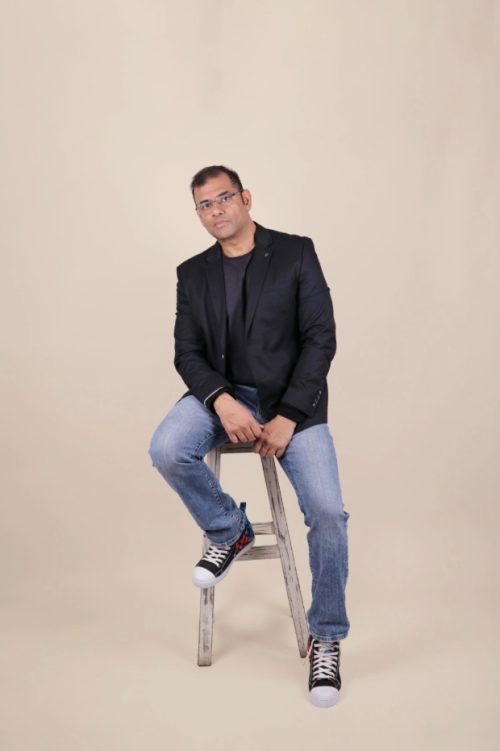
“I am not comfortable going into the details, but I have seen the ill-treatment received by disabled people in the family I grew up in,” he tells The Better India.
“I decided to do something for people with disabilities by making them financially stable and making them employable,” Aziz adds.
How did it all start?
Kobsook was born in 2021 with a heartfelt mission to empower individuals with disabilities, offering them meaningful employment opportunities. However, stepping into a new industry came with its own set of challenges.
“Since I had no prior experience in the footwear industry, I spent a year researching and understanding the intricacies of the business,” Aziz shares.
After traversing the corporate world for over 20 years, working with popular FMCGs like Pepsi
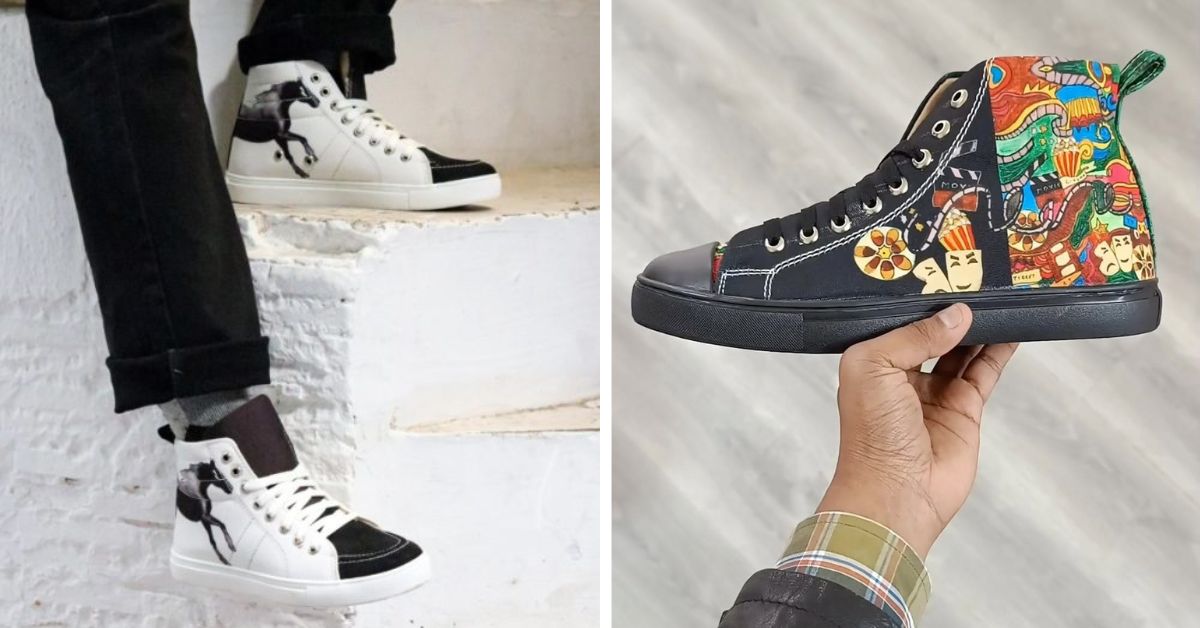
So, Aziz came across AIMS media — an organisation focusing on training disabled individuals with digital and other skills, through his wife, Dr Maria Kapapi.
To turn this idea into something real, he teamed up with AEMP (Ability Enhancement Multimedia Program), part of AIMS, which focuses on training people with disabilities. The program covers four main areas—hobby, career, skill, and program—helping each individual gain the skills they need, based on what works best for them.
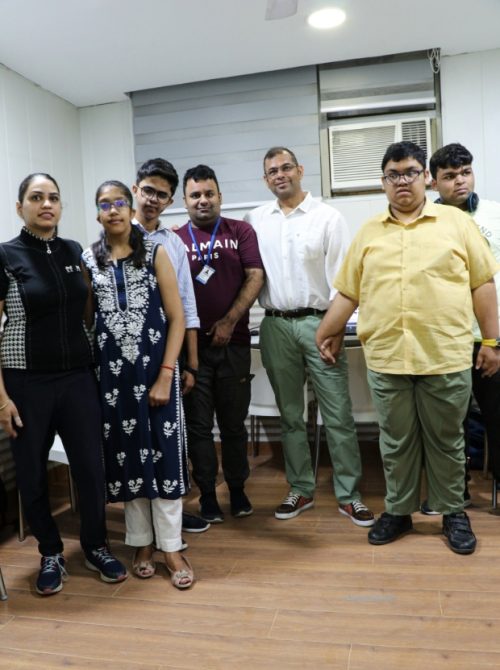
And, in 2021, with three people hired from the institute, Kobsook was formed. “The name Kobsook was inspired by Buddhism; the name means ‘a person with a happy heart and who is compassionate,” explains Aziz
Today, with a tight-knit team of 20, including five individuals with disabilities, Kobsook has quietly achieved something remarkable. Despite the odds, they’ve made a profit of Rs 25 lakh and sold over 3,000 pairs of sneakers. But beyond the numbers, it’s the stories behind each sale—the perseverance, the belief in possibility—that truly define Kobsook’s journey.
Equipping for a better tomorrow
The designs on the sneakers are either inspired by hand-painted artwork created by talented individuals or crafted digitally in Photoshop. These unique pieces are then transformed into high-resolution digital images, bringing the artists’ visions to life.
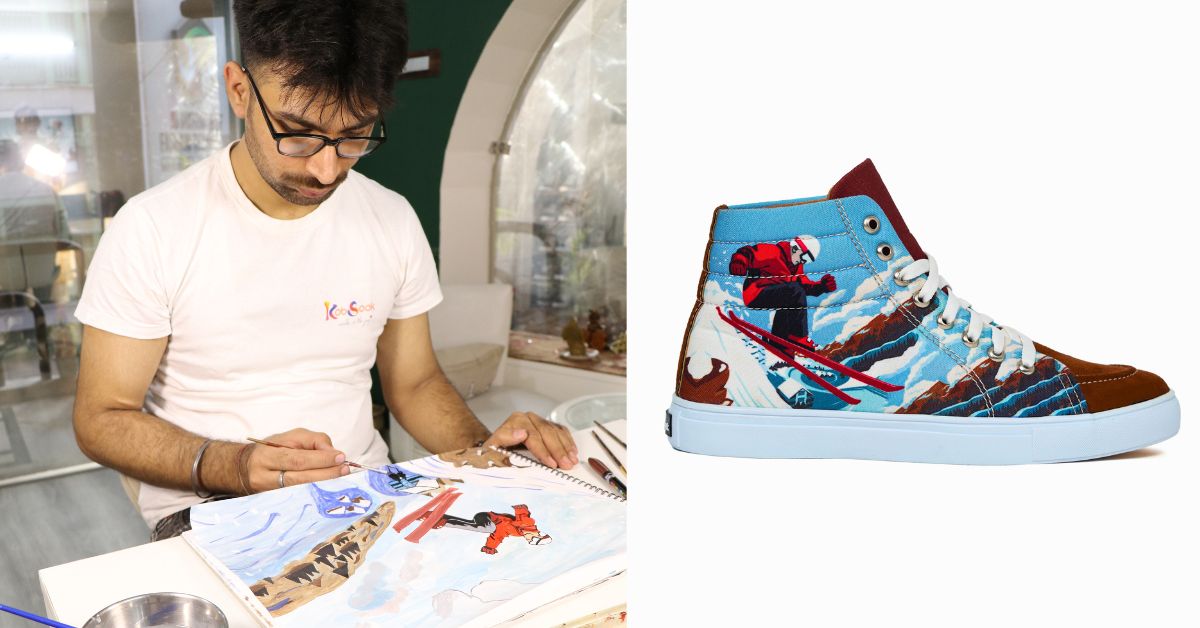
While the process may seem straightforward, achieving the perfect design can be a delicate and often time-consuming task. The team works closely with the artists, explaining the concept in detail and providing reference images to help spark their creativity.
Together, they collaborate to refine and bring these ideas to life, with the internal team offering their expertise to ensure the designs not only reflect the artists’ intentions but also look visually appealing on the sneakers.
Empowering through creativity: More than just a job
“AEMP plays a crucial role in helping us train youth with disabilities,” says Aziz. “We hire them to join our team, providing them with a platform to showcase their incredible potential.” But for Aziz and his team, it’s about more than just employment—it’s about recognising talent, valuing effort, and building self-worth.
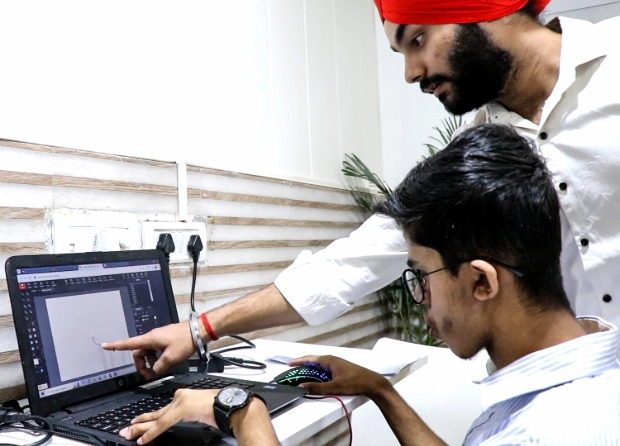
There have been times when they’ve knowingly manufactured shoes that might not have the perfect finish, but it’s worth it just to see the joy on an artist’s face. “It’s not about the product; it’s about showing them that their work is appreciated,” Aziz says, his voice filled with emotion.
Aziz firmly believes that true motivation for children with special needs comes from acknowledgement, not pity. “It’s not about offering monetary benefits out of sympathy—it’s about motivating them to feel proud of their work,” he adds.
Patience in every step: Training beyond the norm
Training individuals with disabilities to use high-tech software is a process that requires not just skill, but patience. “If a typical student needs six months to master Photoshop, a differently-abled individual might take eight months—or sometimes even three years,” Aziz explains, offering a raw insight into the reality of their journey.
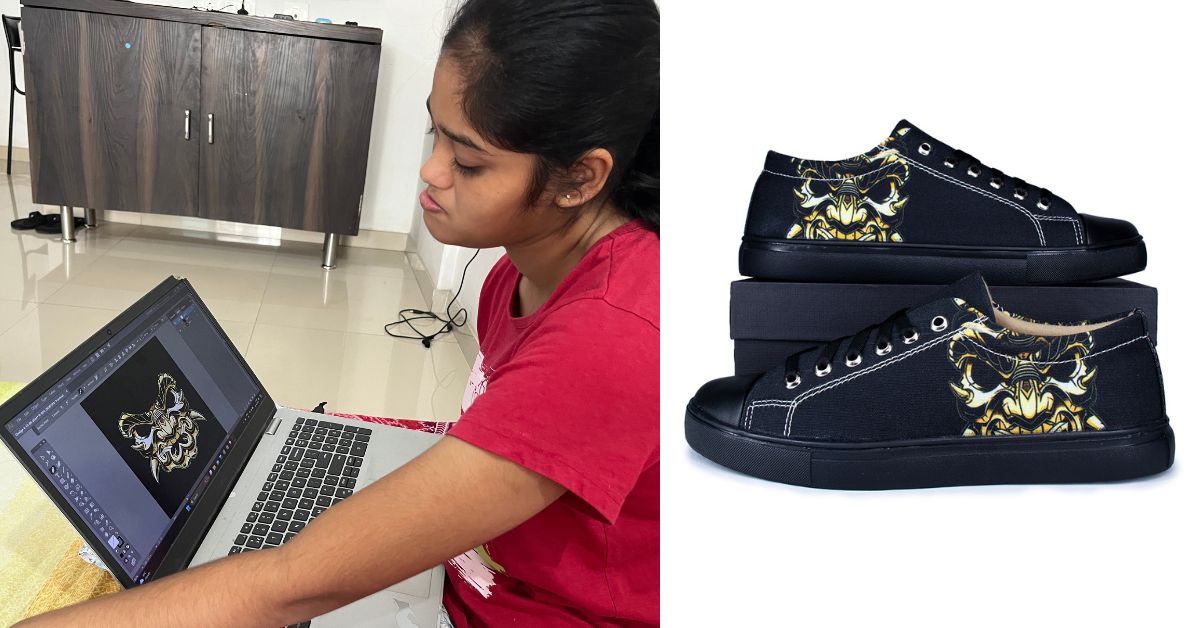
The training isn’t rushed; every individual learns at their own pace. The course structure is designed with the special needs of the students in mind, laying a foundation that is crucial to understanding the complexities of design. “We conduct a CQ (Cognitive Quotient) test to assess their ability to grasp complex design concepts,” shares Arushi Sundriyal, a multimedia trainer at AEMP.
A partnership for change: Talent where it’s least expected
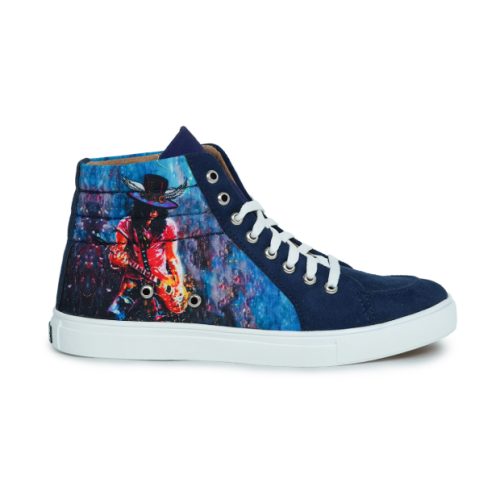
Through their collaboration, Aziz has tapped into a pool of talent that is often overlooked. After the students are trained, Kobsook offers them the opportunity to be part of the team. Many are hired as designers, packers, or key contributors to the creative process. “We submit the students’ resumes to Kobsook, and based on their diverse skills, they’re given opportunities either as interns or full-time employees,” says Arushi.
A sneaker with a purpose: From training to market
Once the youth were equipped with the skills to create, the next challenge was to produce something tangible that would resonate in the market. With dedication, these young talents have proven that they are capable of creating products that go beyond just craftsmanship—they create stories with every step.
Focus on sustainability
While the major focus of the shoe remains on its unique design, the shoe in itself requires special mention. “We use vegan suede and recyclable canvas to make these sustainable shoes,” shares Aziz.
The fabrics printed with Kobsook’s design are procured from HF International in Agra, an MSME, which has a team of 10 semi-skilled workers. “This gets laminated with EVA lining and then fused by the same labourers, for the shoes’ flexibility, and ability to absorb shock,” explains Aziz.
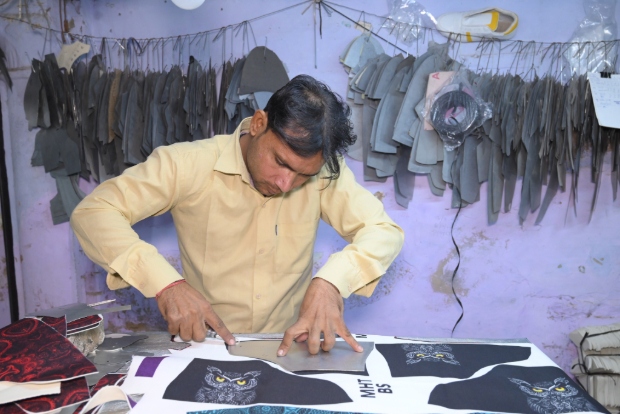
Once the coated fabric reaches Aziz’s team, the labour-intensive process begins. “We have a team of 10 contractual labourers where we train them in the appropriate method to stick, stitch, cut patterns, and assemble the shoes,” shares Aziz.
“By outsourcing for the first two processes of shoe-making, we are satisfied that we can provide employment for the semi-skilled labourers as well,” he adds.
“We are proud to say that we procure all our fabric, canvas, sole and lace from the country and we go for the best quality to provide our premium sneakers,” Aziz quotes.
Turning heads at Dubai airport
Aziz’s aim remains to create a safe space for the disabled, where they are valued for their abilities and not the other way around. The company’s hashtag ‘#Iamdifferentbutable’, speaks volumes in terms of how an individual must perceive people in general.
“We had a child come in and he found it difficult to stay in one place for a long time. We adapted according to his ways,” shares Aziz. “For example: we ask him to start working on the software. When we realise he is getting bored of that, we ask him to paint,” he adds, highlighting how the smallest of schedule changes can mean so much.
The impact extends beyond the workplace. Anjali, who was previously associated with Kobsook, has been able to witness small wins in her life. “She is extraordinary with art. Now her art is featured at the Dubai airport,” shares Aziz proudly.
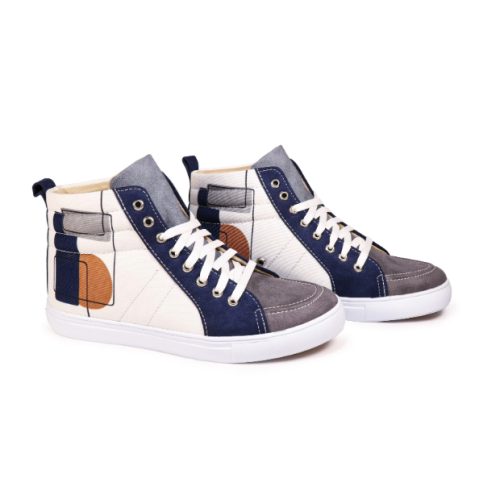
“Other companies, too, need to come forward to provide a conducive environment for disabled people and make them feel at ease. Ultimately, it is the organisation that benefits right?” Aziz quips.
“Initially, when I came across the shoes on Amazon, I instantly liked the unique look and purchased it. I got to know the actual motive of the company later. I’m happy to be part of the cause,” says Vijay Rana, who owns five pairs of Kobsook sneakers.
“We are planning to showcase our sneakers in cafes and gyms for people to immerse in the look and feel of the shoes. I’m positive that our shoes will grab many eyes due to the funky and creative designs,” says Aziz.
Click here to visit their website.
Edited by Arunava Banerjee and Leila Badyari Castelino; All images courtesy Kobsook
No comments:
Post a Comment